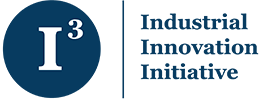FOR IMMEDIATE RELEASE
January 30, 2024
**Media Contacts Listed Below**
Minneapolis, MN/Washington, DC (January 30, 2024) – A new report from an industry-labor-NGO partnership recommends a suite of policies to Congress and the federal administration that would set the US industrial sector on track to achieve net-zero emissions by midcentury. The 2024 Federal Policy Blueprint reflects the shared priorities of the Industrial Innovation Initiative (I3), co-convened by the Great Plains Institute (GPI) and World Resources Institute (WRI), representing a consensus among 19 signatories from industry, labor, nonprofit and other backgrounds.
“Industry is foundational to the US economy, producing the essential materials for our infrastructure and daily life while providing good-paying jobs and economic opportunity to local communities across the country, particularly ones with few other employment opportunities. But this critical sector must also decrease emissions rapidly to meet midcentury decarbonization goals. This policy blueprint charts a path forward to achieve net-zero goals while prioritizing jobs, competitiveness and leadership in technology development and buildout through incentive-based federal policies,” said GPI Industrial Decarbonization Manager David Soll.
The new policy blueprint builds on previous priorities outlined in I3‘s 2021 report, Decarbonizing Industry by 2050: A Federal and State Policy Blueprint. The new 2024 blueprint recommends:
- Build-out of supportive infrastructure for carbon management and hydrogen, such as for transportation and storage, as well as improved regulatory oversight of these processes.
- Access to affordable, clean electricity to meet industrial energy demand while accounting for industrial needs across the energy system, such as further development of the transmission and distribution system.
- Robust data reporting and greenhouse gas benchmarking standards for embodied carbon that together underpin the success of green procurement and related policies.
- Support for market innovation to enable the rapid scale up of cost-competitive, low-emissions technologies through government funding and support for existing markets or tax credits and RDD&D.
The 2024 Federal Policy Blueprint builds upon recent momentum following the federal government’s commitment to provide hundreds of billions of dollars in tax credits and investments through the 2021 Bipartisan Infrastructure Law (BIL) and the 2022 Inflation Reduction Act (IRA). Clear guidance for implementing these investments and getting cross-cutting decarbonization solutions to scale will be critically important to achieving midcentury climate goals.
The 2024 Federal Policy Blueprint seeks to bridge remaining policy gaps to accelerate the pace of industrial decarbonization. I3 members include organizations such as Holcim, LanzaTech, the International Brotherhood of Boilermakers, the National Wildlife Federation and Third Way.
“I3 participants have identified barriers to rapidly scaling solutions required to meet the timeline for midcentury decarbonization. The blueprint recommends the federal policies needed to help overcome those obstacles. I3 will be actively collaborating with diverse stakeholders, lawmakers and regulators to make substantial near-term progress to advance these policies,” said Angela Anderson, director of industrial innovation and carbon removal at WRI.
Of utmost importance in the transition to net zero is the preservation and creation of jobs to support America’s workforce and industries. Failure to cut emissions by the end of this decade will increase the cost of reaching net-zero carbon emissions by 2050.
“The updated I3 Federal Policy Blueprint is about more than hitting our emissions goals—it’s about helping US manufacturers and workers stay competitive. It recommends a wide variety of policy supports that heavy industries can use to shift toward cleaner production faster and more affordably, while expanding their access to growing markets for low-carbon products. These are the kinds of strategic moves that can keep America’s industries and manufacturing communities in the lead globally,” said Ryan Fitzpatrick, senior director of domestic policy in Third Way’s Climate and Energy Program.
-###-
About Great Plains Institute (GPI): A nonpartisan, nonprofit organization, the Great Plains Institute (GPI) accelerates the transition to net-zero carbon emissions for the benefit of people, the economy, and the environment. Working across the US, we combine a unique consensus-building approach, expert knowledge, research and analysis, and local action to find and implement lasting solutions. Our work strengthens communities and provides greater economic opportunity through the creation of higher-paying jobs, expansion of the nation’s industrial base, and greater domestic energy independence while eliminating carbon emissions. Learn more at www.betterenergy.org.
About World Resources Institute (WRI): WRI is a trusted partner for change. Using research-based approaches, we work globally and in focus countries to meet people’s essential needs; to protect and restore nature; and to stabilize the climate and build resilient communities. We aim to fundamentally transform the way the world produces and uses food and energy and designs its cities to create a better future for all. Founded in 1982, WRI has nearly 1,800 staff around the world, with country offices in Brazil, China, Colombia, India, Indonesia, Mexico and the United States and regional offices in Africa and Europe. Learn more at www.wri.org.
MEDIA CONTACTS
Drew Henry
Communications Director
Great Plains Institute
w: 612-429-1222 | c: 651-210-0788
dhenry@gpisd.net
Carrie Dellesky
Program and Outreach Manager, Industrial Innovation and Carbon Removal
World Resources Institute
w: 202-729-7721 | c: 330-719-7367
carrie.dellesky@wri.org

